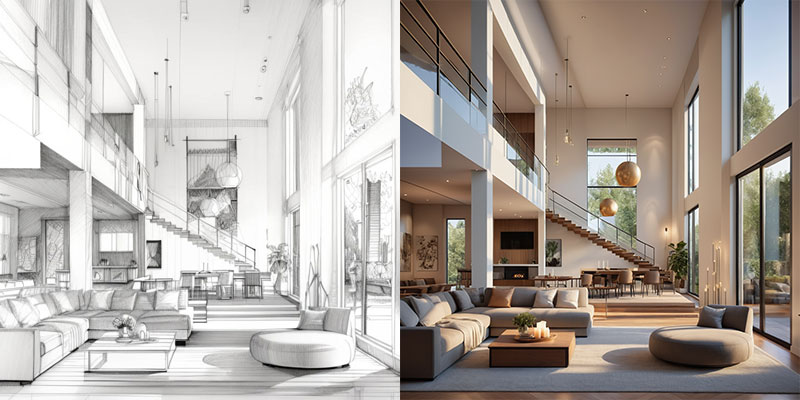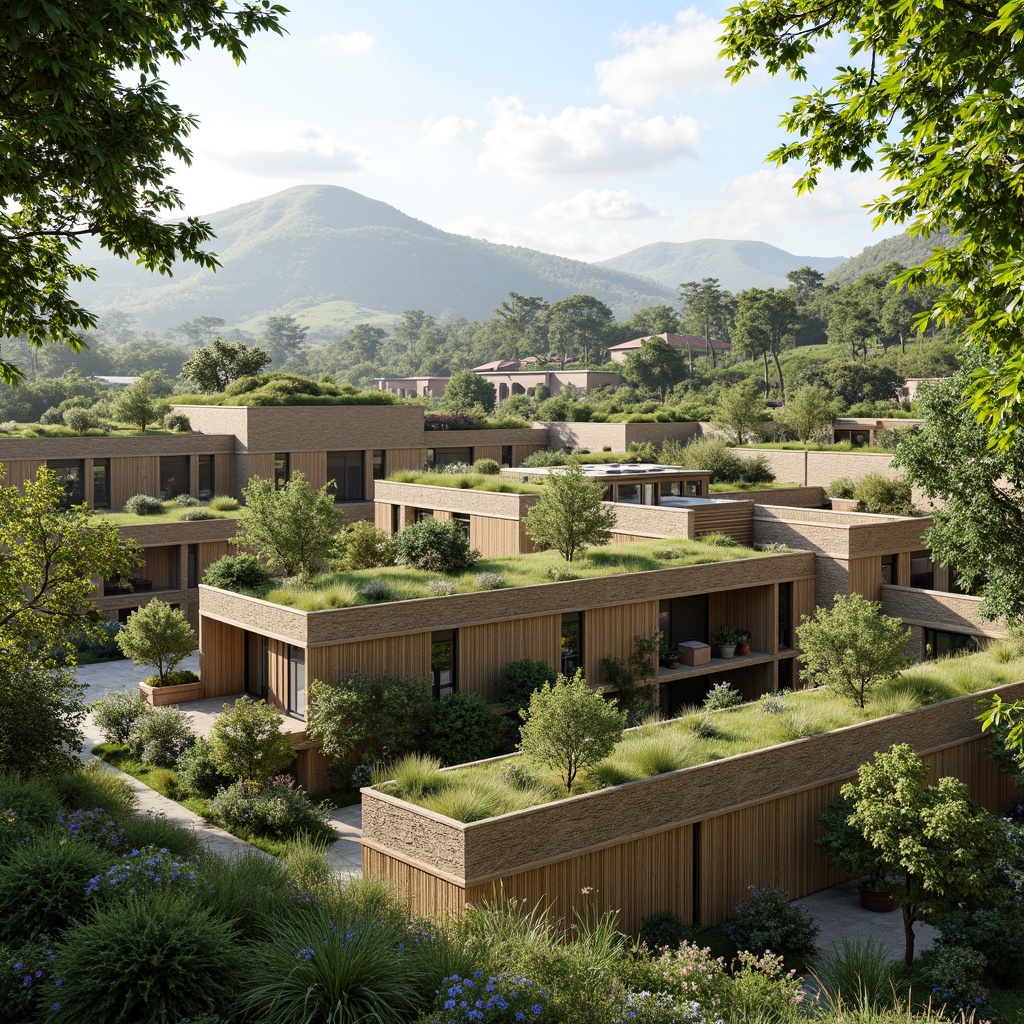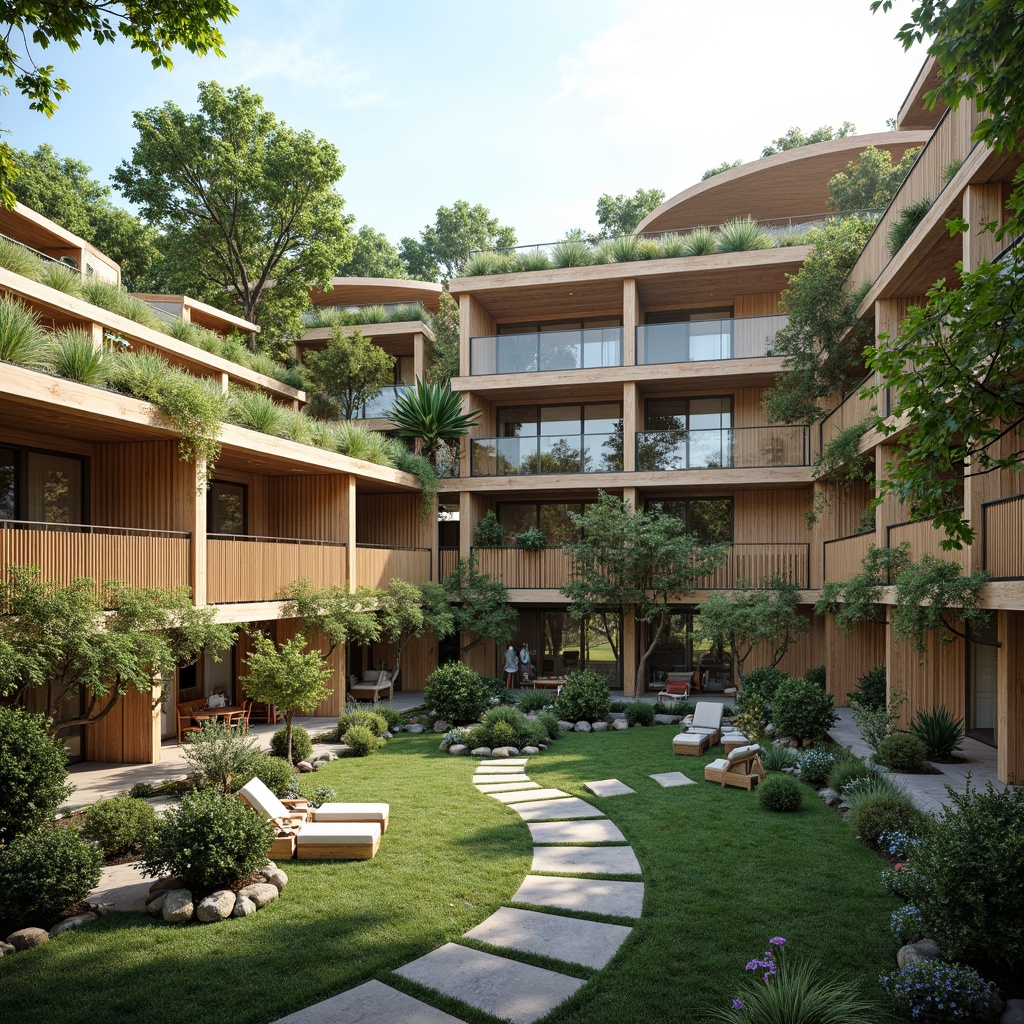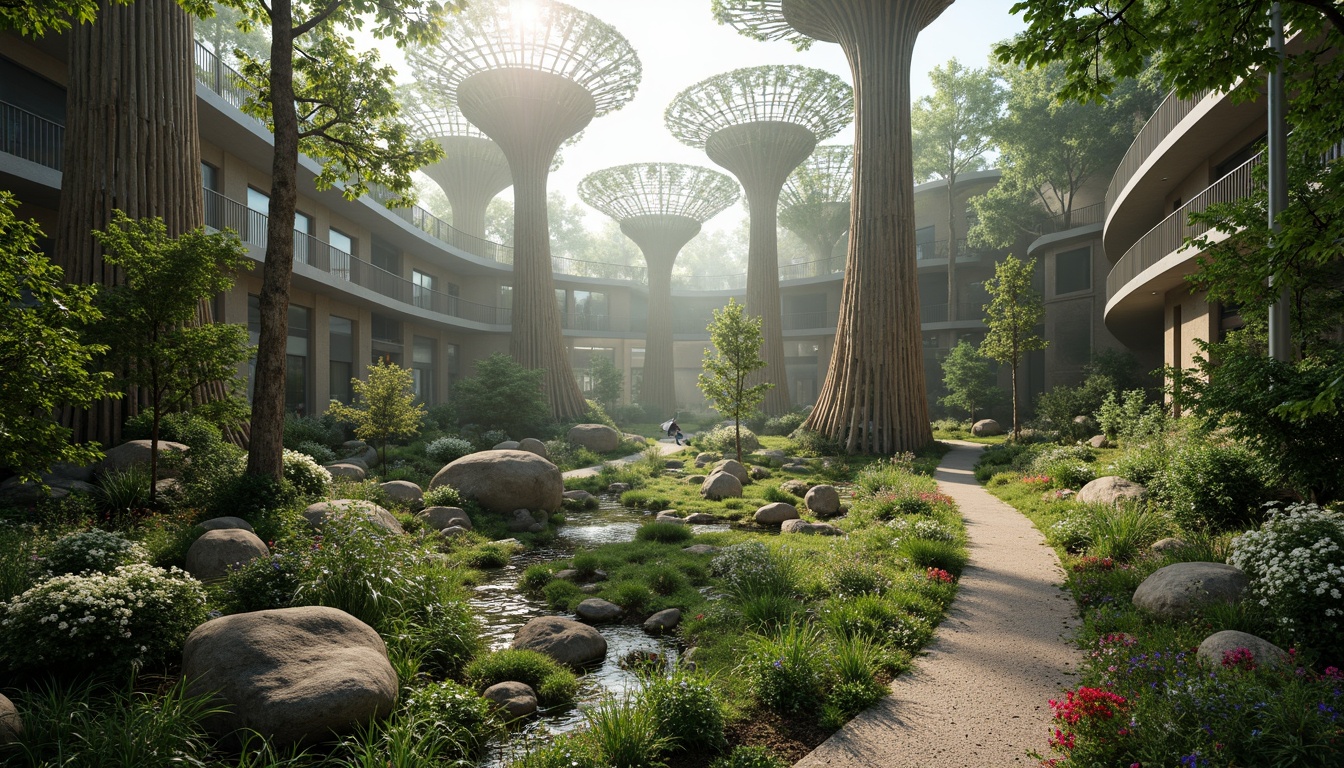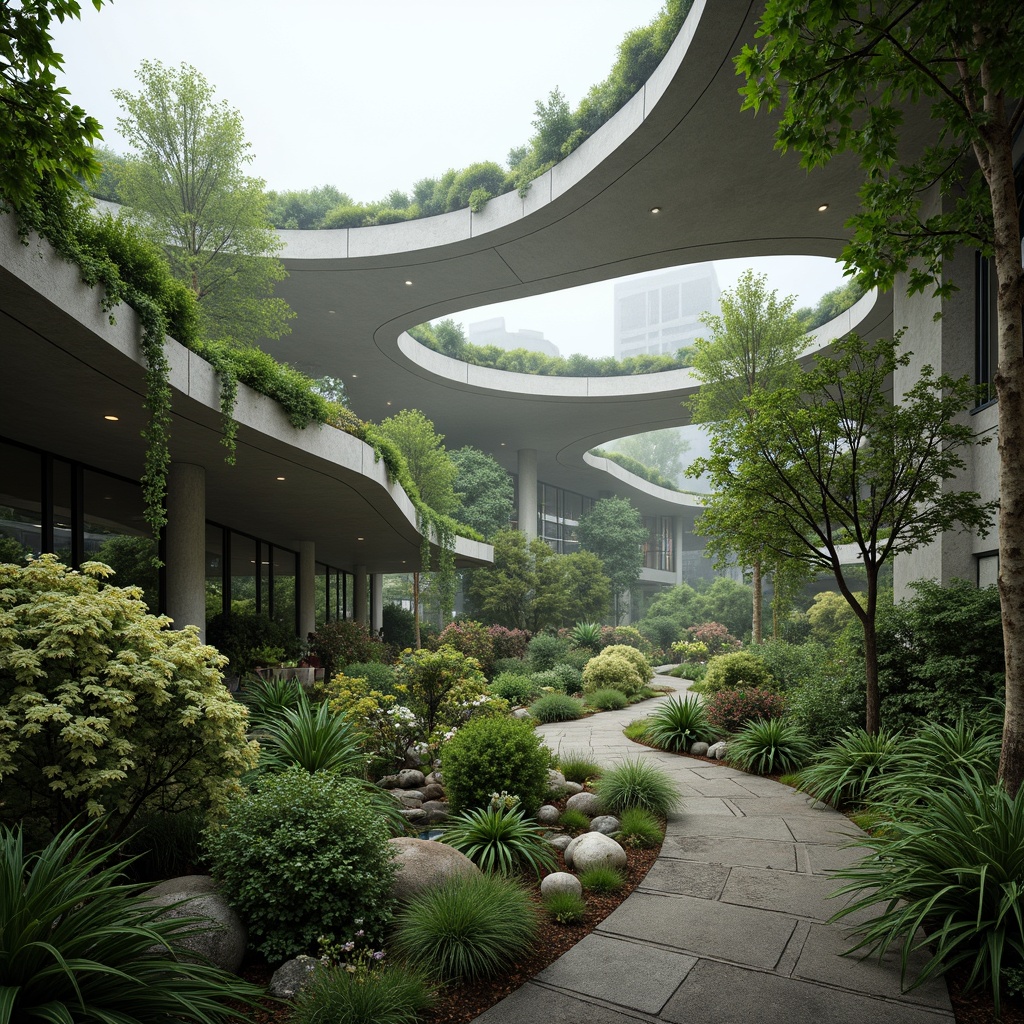友人を招待して、お二人とも無料コインをゲット
Design ideas
/
Architecture
/
Cultural Center
/
Cultural Center Metabolism Style Architecture Design Ideas
Cultural Center Metabolism Style Architecture Design Ideas
The Cultural Center Metabolism style is a fascinating architectural approach that integrates modular design with innovative materials such as polycarbonate in shades like Gainsboro. This style not only embraces the aesthetic qualities of translucent surfaces but also emphasizes environmental integration. In a desert setting, the design harmonizes with the landscape, creating a dialogue between the structure and its environment. Whether you're looking for inspiration for a new project or simply exploring architectural styles, you'll find that the Metabolism style offers unique insights and practical applications.
Modular Design in Cultural Center Metabolism Style
Modular design plays a crucial role in the Cultural Center Metabolism style, allowing for flexibility and adaptability in architectural structures. This approach enables architects to create spaces that can evolve over time, accommodating changing needs and functions. The use of modular units simplifies construction while promoting sustainability. In a desert environment, this can also mean creating efficient structures that minimize resource consumption and maximize space usage, showcasing a perfect blend of innovation and practicality.
Prompt: Vibrant cultural center, modular architecture, interconnected blocks, dynamic curves, futuristic metabolism style, iridescent glass fa\u00e7ade, LED light installations, undulating rooflines, cantilevered structures, open public spaces, interactive exhibits, immersive experiences, virtual reality zones, flexible event areas, adaptive reuse, sustainable materials, energy-harvesting systems, green roofs, urban agriculture, misty atmospheric lighting, shallow depth of field, 1/1 composition, realistic textures, ambient occlusion.
Translucent Surfaces and Their Impact
Translucent surfaces are a hallmark of the Cultural Center Metabolism style, particularly when using materials such as polycarbonate. These surfaces not only allow natural light to flood interior spaces, creating a warm and inviting atmosphere, but they also blur the line between indoor and outdoor environments. In a desert landscape, such features can enhance the building's connection to its surroundings, offering breathtaking views while maintaining privacy. This interaction with light and space is essential in creating a dynamic architectural experience.
Prompt: Ethereal atmosphere, glowing luminescent walls, iridescent ceilings, shimmering floors, delicate glass partitions, crystalline structures, futuristic architecture, sleek metallic accents, holographic displays, ambient lighting, soft focus, shallow depth of field, 1/1 composition, panoramic view, realistic reflections, subtle transparency.
Prompt: Ethereal atmosphere, glowing luminescent walls, iridescent ceilings, shimmering floors, delicate glass partitions, crystalline structures, futuristic architecture, sleek metallic accents, holographic displays, ambient lighting, soft focus, shallow depth of field, 1/1 composition, panoramic view, realistic reflections, subtle transparency.
Prompt: Ethereal atmosphere, glowing luminescent walls, iridescent ceilings, shimmering floors, delicate glass partitions, crystalline structures, futuristic architecture, sleek metallic accents, holographic displays, ambient lighting, soft focus, shallow depth of field, 1/1 composition, panoramic view, realistic reflections, subtle transparency.
Environmental Integration in Architecture
Environmental integration is a key principle of the Cultural Center Metabolism style. This architectural approach focuses on harmonizing buildings with their natural surroundings, which is particularly important in challenging environments like deserts. By considering local climate, topography, and vegetation, architects can design spaces that not only respect but also enhance their ecosystems. This method fosters sustainability, ensuring that structures contribute positively to their environment while offering functional and aesthetic benefits.
Prompt: Eco-friendly buildings, green roofs, solar panels, wind turbines, rainwater harvesting systems, natural ventilation, recycled materials, bamboo facades, living walls, vertical gardens, organic shapes, curved lines, earthy tones, natural stone cladding, wooden accents, minimalist decor, abundant daylight, soft diffused lighting, shallow depth of field, 3/4 composition, panoramic view, realistic textures, ambient occlusion.
Prompt: Eco-friendly buildings, green roofs, solar panels, wind turbines, rainwater harvesting systems, natural ventilation, recycled materials, bamboo facades, living walls, vertical gardens, organic shapes, curved lines, earthy tones, natural stone cladding, wooden accents, minimalist decor, abundant daylight, soft diffused lighting, shallow depth of field, 3/4 composition, panoramic view, realistic textures, ambient occlusion.
Prompt: Eco-friendly buildings, green roofs, solar panels, wind turbines, rainwater harvesting systems, natural ventilation, recycled materials, bamboo facades, living walls, vertical gardens, organic shapes, curved lines, earthy tones, natural stone cladding, wooden accents, minimalist decor, abundant daylight, soft diffused lighting, shallow depth of field, 3/4 composition, panoramic view, realistic textures, ambient occlusion.
Prompt: Eco-friendly buildings, green roofs, solar panels, wind turbines, rainwater harvesting systems, natural ventilation, recycled materials, bamboo facades, living walls, vertical gardens, organic shapes, curved lines, earthy tones, natural stone cladding, wooden accents, minimalist decor, abundant daylight, soft diffused lighting, shallow depth of field, 3/4 composition, panoramic view, realistic textures, ambient occlusion.
Prompt: Eco-friendly buildings, green roofs, solar panels, wind turbines, rainwater harvesting systems, natural ventilation, recycled materials, bamboo facades, living walls, vertical gardens, organic shapes, curved lines, earthy tones, natural stone cladding, wooden accents, minimalist decor, abundant daylight, soft diffused lighting, shallow depth of field, 3/4 composition, panoramic view, realistic textures, ambient occlusion.
Exploring the Color Palette of Gainsboro
The color palette is an essential aspect of any architectural design, and in the Cultural Center Metabolism style, the Gainsboro shade stands out. This soft, neutral color complements the desert landscape, creating a seamless blend between the structure and its surroundings. Utilizing such colors can evoke feelings of calmness and tranquility, making the building more inviting for visitors. Furthermore, carefully chosen hues can influence the perception of space and light within the structure, enhancing the overall architectural experience.
Prompt: Softly lit Gainsboro landscape, warm beige tones, gentle cream hues, weathered stone textures, rustic wooden accents, muted earthy colors, serene natural ambiance, subtle gradient skies, soft focus, shallow depth of field, 1/1 composition, realistic atmospheric effects, ambient occlusion.
Prompt: Softly lit Gainsboro landscape, warm beige tones, gentle cream hues, weathered stone textures, rustic wooden accents, muted earthy colors, serene natural ambiance, subtle gradient skies, soft focus, shallow depth of field, 1/1 composition, realistic atmospheric effects, ambient occlusion.
Prompt: Softly lit Gainsboro landscape, warm beige tones, gentle cream hues, weathered stone textures, rustic wooden accents, muted earthy colors, serene natural ambiance, subtle gradient skies, soft focus, shallow depth of field, 1/1 composition, realistic atmospheric effects, ambient occlusion.
Prompt: Softly lit Gainsboro landscape, warm beige tones, gentle cream hues, weathered stone textures, rustic wooden accents, muted earthy colors, serene natural ambiance, subtle gradient skies, soft focus, shallow depth of field, 1/1 composition, realistic atmospheric effects, ambient occlusion.
Prompt: Softly lit Gainsboro landscape, warm beige tones, gentle cream hues, weathered stone textures, rustic wooden accents, muted earthy colors, serene natural ambiance, subtle gradient skies, soft focus, shallow depth of field, 1/1 composition, realistic atmospheric effects, ambient occlusion.
Landscape Interaction in Metabolism Style Architecture
Landscape interaction is a vital consideration in the design of buildings within the Cultural Center Metabolism style. Architects strive to create a symbiotic relationship between the structure and the natural environment. In a desert setting, this may involve using elements such as terraces, gardens, and water features that not only beautify the site but also provide essential ecological benefits. By fostering this interaction, the architecture becomes part of the landscape, enriching both the environment and the user experience.
Prompt: Vibrant metabolic landscape, winding pathways, lush greenery, futuristic architecture, curved lines, biomimicry design, organic forms, natural materials, earthy tones, ambient lighting, misty atmosphere, shallow depth of field, 1/1 composition, panoramic view, realistic textures, ambient occlusion, interactive installations, immersive experiences, dynamic water features, kinetic sculptures, responsive environments, adaptive systems.
Prompt: Vibrant metabolic landscape, winding pathways, lush greenery, futuristic architecture, curved lines, biomimicry design, organic forms, natural materials, earthy tones, ambient lighting, misty atmosphere, shallow depth of field, 1/1 composition, panoramic view, realistic textures, ambient occlusion, interactive installations, immersive experiences, dynamic water features, kinetic sculptures, responsive environments, adaptive systems.
Prompt: Vibrant metabolic landscape, winding pathways, lush greenery, futuristic architecture, curved lines, biomimicry design, organic forms, natural materials, earthy tones, ambient lighting, misty atmosphere, shallow depth of field, 1/1 composition, panoramic view, realistic textures, ambient occlusion, interactive installations, immersive experiences, dynamic water features, kinetic sculptures, responsive environments, adaptive systems.
Prompt: Vibrant metabolic landscape, winding pathways, lush greenery, futuristic architecture, curved lines, biomimicry design, organic forms, natural materials, earthy tones, ambient lighting, misty atmosphere, shallow depth of field, 1/1 composition, panoramic view, realistic textures, ambient occlusion, interactive installations, immersive experiences, dynamic water features, kinetic sculptures, responsive environments, adaptive systems.
Prompt: Vibrant metabolic landscape, winding pathways, lush greenery, futuristic architecture, curved lines, biomimicry design, organic forms, natural materials, earthy tones, ambient lighting, misty atmosphere, shallow depth of field, 1/1 composition, panoramic view, realistic textures, ambient occlusion, interactive installations, immersive experiences, dynamic water features, kinetic sculptures, responsive environments, adaptive systems.
Conclusion
The Cultural Center Metabolism style, characterized by its modular design, translucent surfaces, and environmental integration, offers a unique perspective on architecture. By using a thoughtful color palette and fostering landscape interaction, this style creates spaces that are not only visually stunning but also deeply connected to their surroundings. Such designs are ideal for various applications, from cultural institutions to community centers, making them a valuable choice for modern architecture.
Want to quickly try cultural-center design?
Let PromeAI help you quickly implement your designs!
Get Started For Free
Other related design ideas

Cultural Center Metabolism Style Architecture Design Ideas

Cultural Center Metabolism Style Architecture Design Ideas

Cultural Center Metabolism Style Architecture Design Ideas

Cultural Center Metabolism Style Architecture Design Ideas

Cultural Center Metabolism Style Architecture Design Ideas

Cultural Center Metabolism Style Architecture Design Ideas

